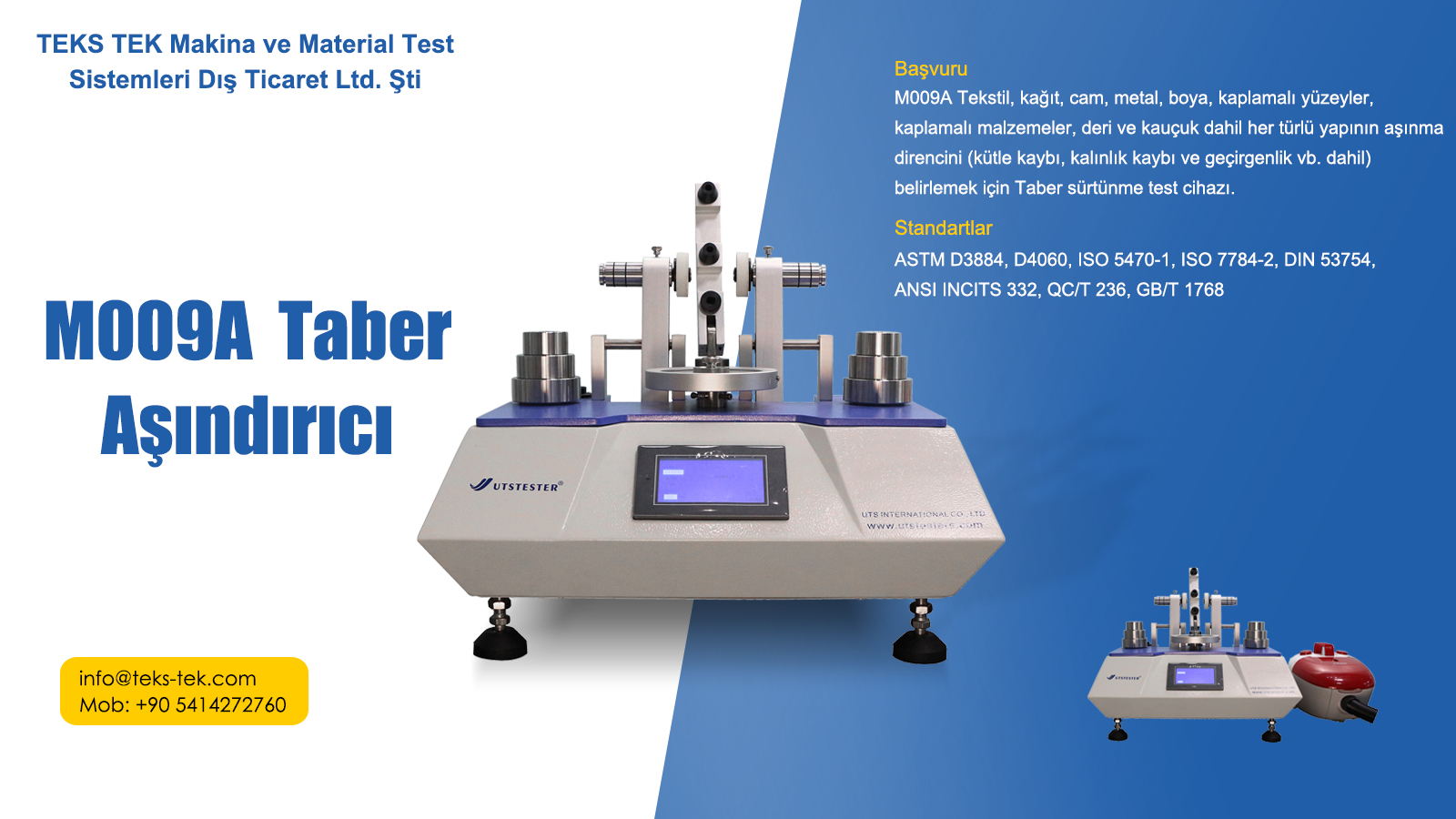 +86 152 6060 5085
+86 152 6060 5085
 +86 152 6060 5085
+86 152 6060 5085
Blog
Catalog
Latest Blog
Taber Tester (Taber Abrasion Tester) is a key testing equipment widely used in the textile industry, mainly used to evaluate the abrasion resistance, pilling resistance and surface durability of fabrics. Its precise quantitative testing capability provides an important basis for textile quality control, product development and industry standard certification. The following are the main uses of Taber Tester in the textile industry:
1. Evaluate the wear resistance of fabrics
(1) Simulate real wear environment
The Taber tester simulates the wear of fabrics in daily wear, washing, friction and other environments by rotating friction.
It is suitable for all kinds of textiles, such as clothing fabrics (cotton, polyester, wool, etc.), home textiles (sheets, sofa covers), industrial fabrics (tents, canvas), etc.
(2) Quantifying the wear resistance level
The wear resistance level of the fabric is determined by calculating the mass loss (unit: mg) after a certain number of friction cycles or observing the degree of surface wear.
For example:
Highly wear-resistant fabrics (such as work clothes and military uniforms) need to withstand a higher number of cycles (such as 10,000 times) without obvious wear.
Low wear-resistant fabrics (such as silk and lace) may be significantly damaged after 1,000 friction cycles.
2. Test the anti-pilling performance
(1) Evaluate the changes in the fabric surface
During the friction process, the fabric surface may form pilling due to fiber breakage and entanglement, affecting the appearance and feel.
The Taber tester can be combined with standard ratings (such as ISO 12945-2, ASTM D4970) for anti-pilling testing.
(2) Optimize the textile process
Optimize product design by comparing the test results of different fiber compositions, weaving methods or finishing processes (such as anti-pilling additive treatment).
3. Testing the durability of special textiles
(1) Automotive interior materials
Seat fabrics, seat belts, car roofs, etc. need to withstand long-term friction. Taber testers can simulate the wear and tear after long-term use.
(2) Protective clothing and functional textiles
Fire suits, medical protective clothing, etc. need to maintain durability in extreme environments. Testing their wear resistance can ensure their service life.
(3) Carpets and decorative fabrics
Evaluate the degree of wear of carpets after long-term trampling and optimize fiber selection (such as nylon vs. polypropylene).
4. Comply with international testing standards
Taber testers are widely used in textile testing laboratories around the world and comply with many international standards, such as:
ASTM D3884 (Textile Abrasion Resistance Test)
ISO 5470-1 (Coated Fabric Abrasion Resistance)
GB/T 21196 (Chinese Textile Abrasion Resistance Standard)
5. Optimize production process and cost control
Material screening: Select the most cost-effective raw materials by comparing the wear resistance data of different fabrics.
Process improvement: such as adjusting yarn density and finishing process (such as resin treatment) to improve wear resistance.
Reduce return rate: Ensure that products meet industry standards and reduce customer complaints caused by quality problems.
Conclusion
The application of Taber tester in the textile industry covers abrasion resistance testing, anti-pilling evaluation, durability analysis of special textiles and other aspects, providing a scientific basis for product quality control, R&D optimization and industry certification. Its precise testing methods and wide standard applicability make it an indispensable equipment for textile enterprises, testing institutions and R&D centers.
With the data support of Taber tester, textile enterprises can improve product competitiveness, reduce quality risks and meet the needs of different markets.

Email: hello@utstesters.com
Direct: + 86 152 6060 5085
Tel: +86-596-7686689
Web: www.utstesters.com